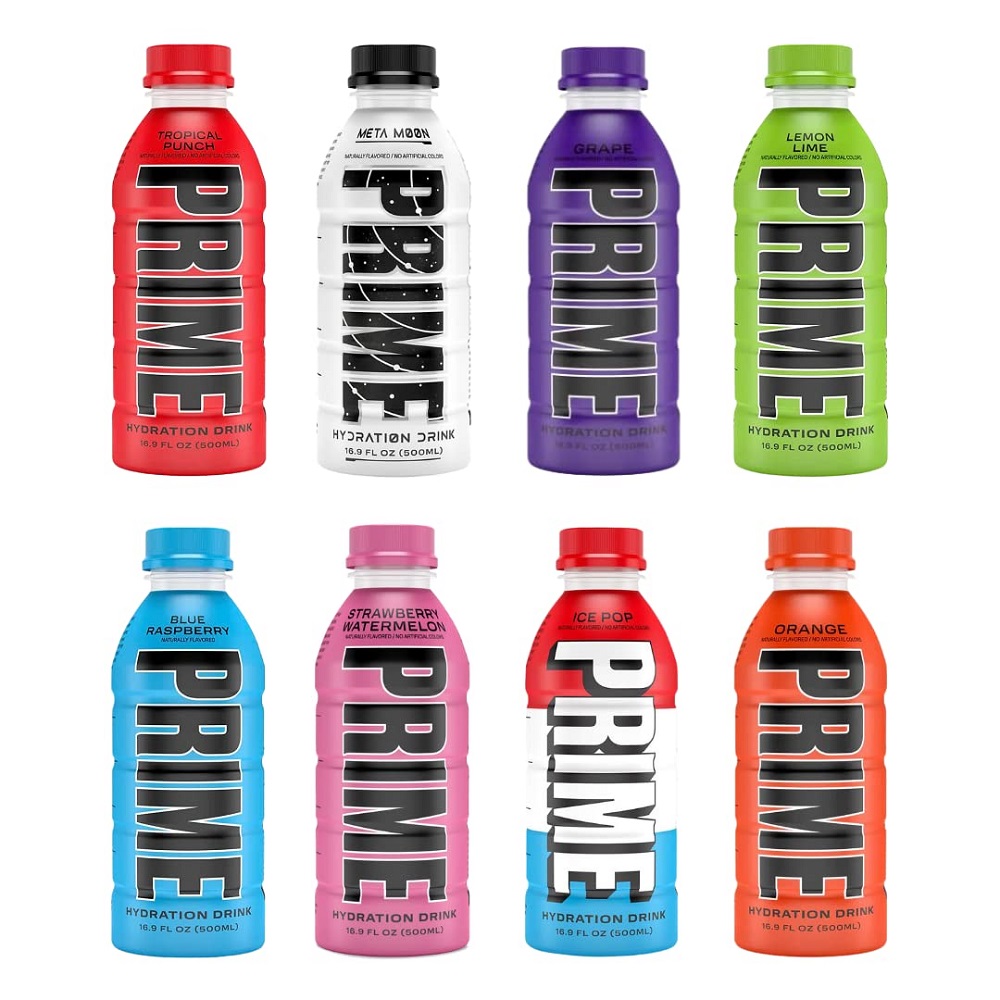
Coconut Water
Coconut water is the clear liquid found inside green coconuts. It is a popular drink that is rich in electrolytes, vitamins, and minerals such as potassium, magnesium, calcium, and sodium. Coconut water is low in calories, cholesterol-free, and contains natural sugars and carbohydrates that can help to replenish energy levels.
Dipotassium Phosphate
Dipotassium phosphate is a type of salt that is commonly used as a food additive. It is often used as a buffering agent in foods and beverages to help maintain the pH level and prevent spoilage. It is also used to enhance the texture and appearance of processed foods, and can act as an emulsifier to help ingredients mix together evenly.
Trimagnesium Citrate
Trimagnesium citrate is a type of magnesium salt made by combining magnesium and citric acid. Magnesium is an essential mineral that plays many important roles in the body, such as helping to maintain healthy bone structure, supporting nerve function, and regulating heart rhythm. Trimagnesium citrate is commonly used as a dietary supplement to help ensure adequate intake of magnesium.
L-Soleucine
L-Soleucine is an essential amino acid, which means that it cannot be produced by the body and must be obtained from food or supplements. It is found in high-protein foods such as meat, fish, eggs, and legumes. L-Soleucine plays a role in protein synthesis, which is important for muscle growth and repair. It also helps to regulate blood sugar levels, promote wound healing, and support immune function.
D-alpha tocopheryl acetate
D-alpha tocopheryl acetate is a form of vitamin E, which is a fat-soluble vitamin and an antioxidant. It helps to protect our cells from damage caused by free radicals, which are molecules that can harm our cells and contribute to aging and disease.
Acesulfame Potassium
Acesulfame Potassium, also known as Ace-K, is a calorie-free artificial sweetener commonly used in foods and beverages as a sugar substitute. It is 200 times sweeter than sugar, so only a small amount is needed to achieve the desired sweetness.
Retinyl Palmitate
Retinyl Palmitate is a form of vitamin A that is commonly used in dietary supplements and skin care products. It is a combination of retinol and palmitic acid, and is a type of retinoid. Retinoids are known to have antioxidant properties and may help improve skin texture and reduce the appearance of fine lines and wrinkles.
Pyridoxine Hydrochloride
Pyridoxine Hydrochloride, also known as vitamin B6, is an essential nutrient that plays a role in over 100 different enzymatic reactions in the body. It is involved in the metabolism of amino acids, the synthesis of neurotransmitters, and the production of red blood cells.
Cyanocobalamin
Cyanocobalamin, also known as vitamin B12, is a water-soluble vitamin that is essential for the proper functioning of the nervous system and the production of red blood cells. Vitamin B12 is primarily found in animal products, so people who follow a vegan or vegetarian diet may be at risk of deficiency.
References
- Lampila, L.E. (2013). Applications and functions of food‐grade phosphates. Annals of the New York Academy of Sciences, 1301(1), pp.37–44. doi: https://doi.org/10.1111/nyas.12230.
- Leucine-Enhanced Essential Amino Acid Dietary Supplement. (2020). doi: https://doi.org/10.32388/akeylh.
- Prades, A., Dornier, M., Diop, N. and Pain, J.-P. (2012). Coconut water uses, composition and properties: a review. Fruits, [online] 67(2), pp.87–107. doi: https://doi.org/10.1051/fruits/2012002.
- Silva, C.A. and Jayne, D. (2006). Pyridoxine toxicity courtesy of your local health food store. doi: https://doi.org/10.1136/ard.2006.054213.
- Sorg, O., Antille, C., Kaya, G. and Saurat, J.-H. (2006). Retinoids in cosmeceuticals. Dermatologic Therapy, 19(5), pp.289–296. doi: https://doi.org/10.1111/j.1529-8019.2006.00086.x.
- Turck, D., Castenmiller, J., De Henauw, S., Hirsch‐Ernst, K.I., Kearney, J., Knutsen, H.K., Maciuk, A., Mangelsdorf, I., McArdle, H.J., Naska, A., Pelaez, C., Pentieva, K., Siani, A., Thies, F., Tsabouri, S., Vinceti, M., Dean, T., Engel, K., Heinonen, M. and Marchelli, R. (2018). Magnesium citrate malate as a source of magnesium added for nutritional purposes to food supplements. EFSA Journal, 16(12). doi: https://doi.org/10.2903/j.efsa.2018.5484.
- Watanabe, F. (2007). Vitamin B12 sources and bioavailability. Experimental biology and medicine (Maywood, N.J.), [online] 232(10), pp.1266–74. doi: https://doi.org/10.3181/0703-MR-67.
- Zheng, Y. and Sarr, M.G. (2012). Effect of the Artificial Sweetener, Acesulfame Potassium, a Sweet Taste Receptor Agonist, on Glucose Uptake in Small Intestinal Cell Lines. Journal of Gastrointestinal Surgery, 17(1), pp.153–158. doi: https://doi.org/10.1007/s11605-012-1998-z.
Next, check out some similar articles you might find interesting:
Just Egg Ingredients & Health Benefits
Midol Complete Ingredients & Health Benefits
Liquid IV Hydration Multiplier Ingredients & Health Benefits
Vital Proteins Collagen Peptides Ingredients & Health Benefits

Leave a Reply